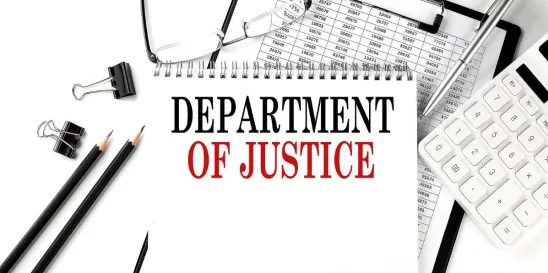In September 2022, US Deputy Attorney General (DAG) Lisa Monaco released the Monaco Memo, which introduced revisions to the DOJ’s Corporate Enforcement Policy. These revisions include a focus on the use of compensation structures to promote positive compliance behavior. The Monaco Memo instructs prosecutors to consider whether a corporation’s compensation systems, such as compensation clawback provisions, enable penalties to be levied against current and former employees who engage in or permit misconduct, and whether corporations encourage an ethical corporate culture by rewarding employees and executives who promote compliance within the organization.
In March 2023, the DOJ’s Criminal Division released a memo describing its pilot program regarding compensation incentives and clawbacks. The program requires companies entering into criminal resolutions with the DOJ to implement compliance-related criteria in their compensation and bonus systems and directs prosecutors to consider fine reductions when companies make efforts to recoup compensation from culpable directors and employees.
In a speech on October 4, 2023, DAG Monaco emphasized that the DOJ is “keenly focused on the role compensation plays in guiding employee behavior.” She further noted that, pursuant to the pilot program, recent resolutions between the DOJ and corporations have reflected the DOJ’s new compensation incentive requirements. For example, the DOJ’s $218 million settlement with chemical company Albemarle Corp. for alleged violations of the Foreign Corrupt Practices Act (FCPA) included a fine reduction of $763,453, the exact total of bonuses Albemarle withheld from sixteen employees suspected of engaging in wrongdoing. In addition, Albemarle received credit pursuant to the DOJ Criminal Division Corporate Enforcement and Voluntary Self-Disclosure Policy for adopting remedial measures such as restructuring compensation incentives so that they were no longer tied to sales amounts. Moving forward, the settlement requires Albemarle to implement incentives, including compensation and bonus criteria, that promote behavior by directors, employees, and agents that complies with Albemarle’s anti-corruption policies.
Similarly, the DOJ’s deferred prosecution agreement (DPA) with Colombian financial services institution Corporación Financiera Colombiana S.A. (Corficolombiana) to resolve alleged FCPA violations requires the company to implement tools designed to incentivize positive compliance behavior. Specifically, the DPA requires Corficolombiana to enhance its compensation and bonus systems to include compliance-related criteria.
The resolutions with Albemarle and Corficolombiana illustrate what businesses should anticipate as the DOJ implements its guidance concerning compensation structures. The Albemarle resolution, in particular, indicates that the DOJ expects companies to levy serious financial penalties against wrongdoers if they hope to receive cooperation credit. Companies need to assess whether they have sufficient compensation structures to incentivize adherence to their anti-corruption policies and procedures. In doing so, they should consider not only guidance from the DOJ, but also recent enforcement actions, which provide practical information on how the government will evaluate companies.







 />i
/>i

